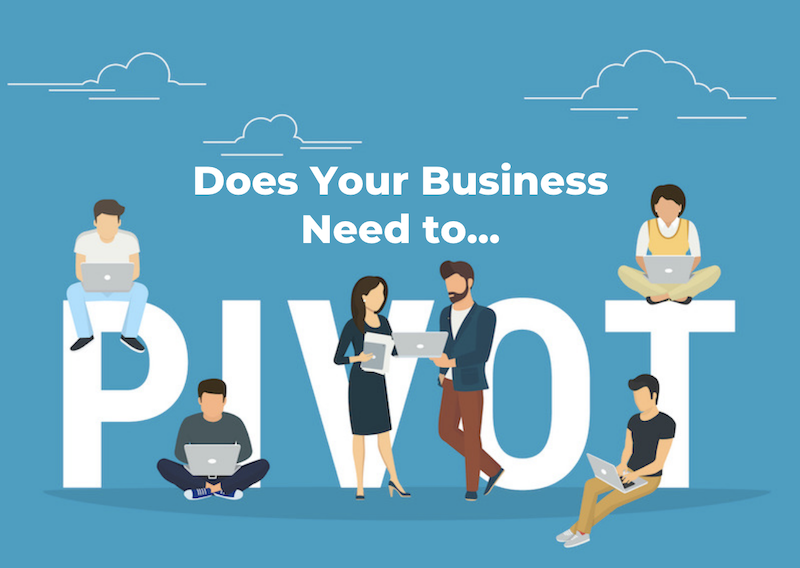The pandemic’s effect on the economy leaves business owners adjusting to the “New Normal.” And that may require significant changes to how you run your business as well as a possible business pivot. What is a pivot? A pivot is a significant shift in a business’ strategy. That shift might include a change in your market, your sales channels, or even your product line. Is it time to pivot your business in this COVID-19 new normal economy? Let’s take a look.
COVID-19 And The New Normal Economy
There are obvious changes to the way we do business today. Restaurants are doing curbside take-out and more delivery. Employees are working from home more — and maybe permanently. Some businesses are even closed at times, including gyms and bars. But along with that, there are some ironically good signs (MarketWatch):
- Weekly unemployment claims are dropping.
- Home prices are rising.
- Those paying their rent and mortgage are rising and are over 90%.
At the same time, the number of cases and deaths due to COVID-19 continues to rise across the US. And, as we all wait for the vaccine, many people are staying home and wearing masks when they go out.
So what does that mean to your business’ strategy?
How To Pivot During The Coronavirus Pandemic
Business pivots are common in non-pandemic times. It’s something you keep an eye on to make sure you don’t miss big opportunities. However, with the changes that have been thrust upon us, now is a time – to take a look at a possible pivot. So, how do you pivot during the pandemic?
- Go back to the beginning. Remember the startup days? You likely did a business pivot a time or two as you got to know your market. Get back into that mindset, using the changing economy as context.
- Take your time. The wrong pivot can be worse for sales than staying the course. Run your numbers, talk to customers, and do some testing before you make the big pivot.
- Choose your pivot plan.
- No Pivot: You might find that staying the course is the best option. At this point, we’re deep enough into the pandemic that if you stay- put and thrive-, you have your answer.
- New Products, Same Market: How has your market adjusted during the pandemic? Are they staying at home? Do they drive less? Do they spend time with kids at computers for schooling? These changes may present new opportunities for a product pivot.
- New Market, Same Products: With changes in the market, you might find that a new market or market segment comes to you and is a great fit for your products. Additionally, consider going digital with your existing products.
- New Market and New Products: This most drastic option is to take a new product into a new market. This is like starting all over again. But you may have heard of a Business Services and AI company who use to sell computers and typewriters, right? (IBM). There are times that a full-scale change is for the best.
Business Pivot Ideas And Examples During COVID
This Harvard Business Review article has some great examples of businesses making a pivot during the pandemic, as well as ideas for pivots in certain industries:
- Spotify: Pivoted to offering its own original content in the form of podcasts.
- Restaurants: Restaurants are already offering more take-out, delivery and catering. – Additionally, they could also offer meal subscriptions and pre-cooked meals.
- Farmers and Manufacturers: Having watched their sales through supermarket channels drop dramatically, these businesses started focusing on “homebound” customers, marketing directly to those staying at home.
- “Unilever has pivoted to prioritize its packaged food, surface cleaners, and personal hygiene product brands over other products, such as skin care, where demand has fallen.”
Your Pivot Plan
Let’s run your numbers and review your business plan together. Then, we can decide if a shift in strategy — a business pivot — is the right prescription for your business. Coming out of The Great Recession, about 17% of businesses closed their doors, – while nearly 10% thrived. Let’s make sure your business is one that thrives coming out of this new economy.
Schedule a free consultation or call – the ASCEND office today at 888-297-3321.

